
What Are Intelligent Agents in AI? Explained in a Simple Way

Published on: February 06, 2025 Erp
Gone are the days of cumbersome spreadsheets and disconnected workflows. A modern ERP system provides a unified platform where businesses can streamline processes, improve efficiency, and access real-time insights. Whether you’re dealing with inventory management, financial reporting, or customer service, ERP solutions optimize operations across all departments. With built-in AI and machine learning, businesses gain predictive analytics that supports better decision-making. This blog explores why businesses must embrace modern ERP to stay competitive in today’s dynamic market.
Modern ERP systems optimize business operations, enhance decision-making, and drive efficiency across industries.
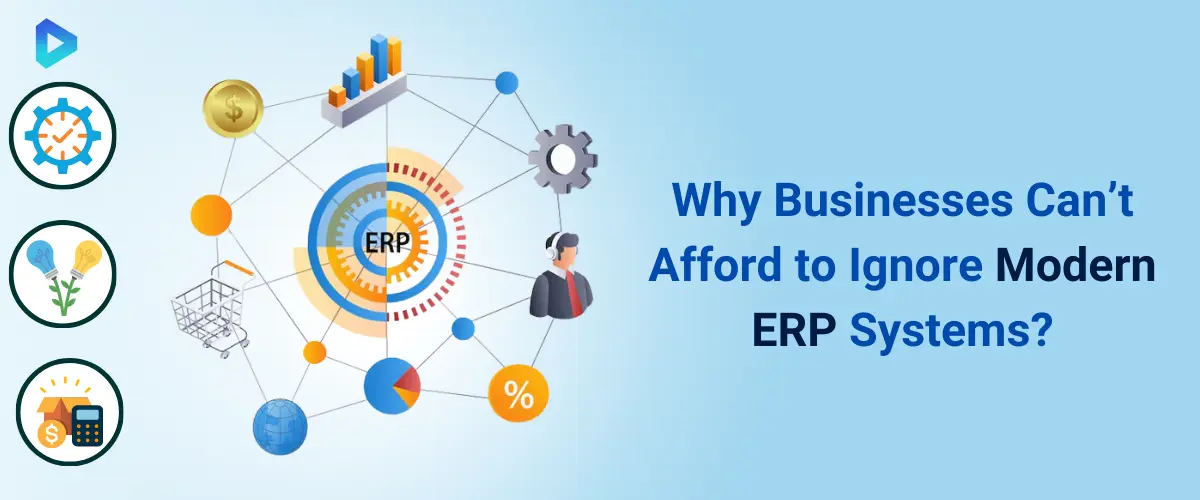
Enterprise Resource Planning (ERP) systems have evolved significantly from basic inventory management tools to cloud-based, AI-driven platforms. Traditional ERP systems were on-premise, expensive, and rigid, making them difficult to scale. The rise of cloud computing and automation has transformed ERP into a more agile, accessible, and cost-effective solution. Modern ERP integrates real-time analytics, machine learning, and IoT, enabling businesses to make data-driven decisions. With the ability to connect multiple departments, ERP streamlines processes, reduces redundancy, and improves operational efficiency. As businesses face increasing complexity and competition, adopting a modern ERP system is no longer optional—it’s a necessity.
Modern ERP systems drive business efficiency by automating manual tasks, improving data accuracy, and enhancing workflow management. These systems offer:
Cloud-based ERP solutions provide remote accessibility, ensuring that teams can collaborate and access data anytime, anywhere. Additionally, AI-driven automation reduces time-consuming processes, allowing employees to focus on strategic growth initiatives rather than administrative tasks.
While legacy ERP systems often faced high costs, inflexibility, and security concerns, modern ERP platforms address these issues with cost-effective cloud solutions, enhanced customization, and advanced security protocols. Businesses can now integrate third-party applications, ensuring their ERP system adapts to unique business needs. AI and predictive analytics also eliminate data silos, providing a centralized, 360-degree view of business operations. With automated updates and minimal maintenance costs, modern ERP empowers businesses to stay competitive, efficient, and future-ready.
Modern ERP systems come with advanced features that enhance efficiency, automation, and real-time decision-making.
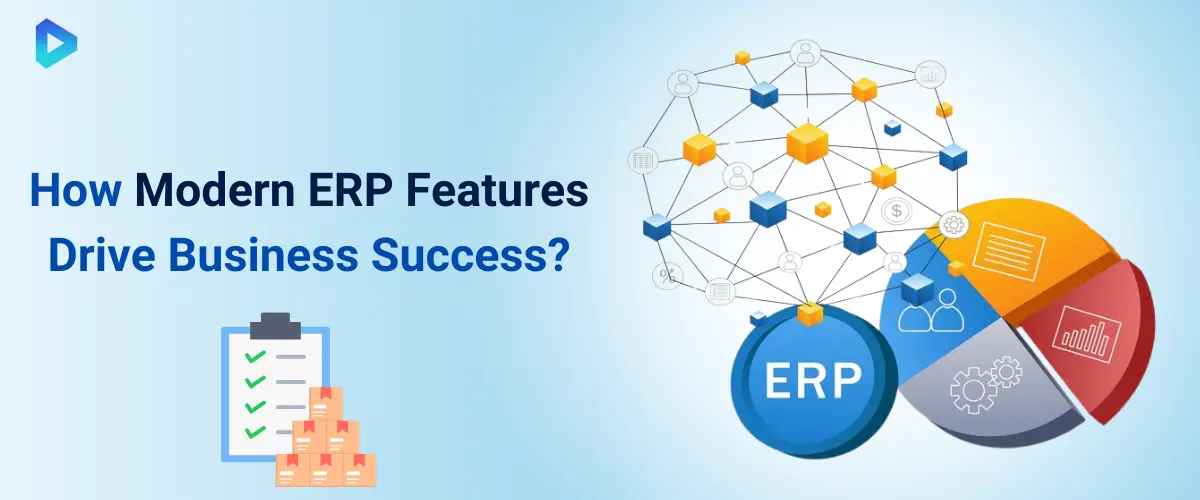
A modern ERP system must include core functionalities that drive business efficiency and agility. Some essential features include:
These features enable businesses to streamline operations, reduce costs, and improve productivity. Unlike traditional ERP, modern systems provide intuitive dashboards, mobile accessibility, and AI-driven insights, allowing organizations to stay competitive in a dynamic market.
Beyond the essentials, modern ERP systems offer advanced capabilities that enhance business performance. These include:
These advanced features make ERP systems not just operational tools but strategic assets that help organizations anticipate changes, improve customer experience, and drive innovation.
The integration of AI and automation in ERP systems has revolutionized business operations. AI-powered ERP automates data entry, reporting, and decision-making processes, allowing companies to focus on strategic growth rather than administrative tasks. Key benefits include:
By leveraging machine learning, robotic process automation (RPA), and AI-driven insights, businesses can achieve unmatched efficiency, reduce costs, and improve operational accuracy.
Modern ERP systems offer powerful advantages, improving productivity, reducing costs, and ensuring compliance.
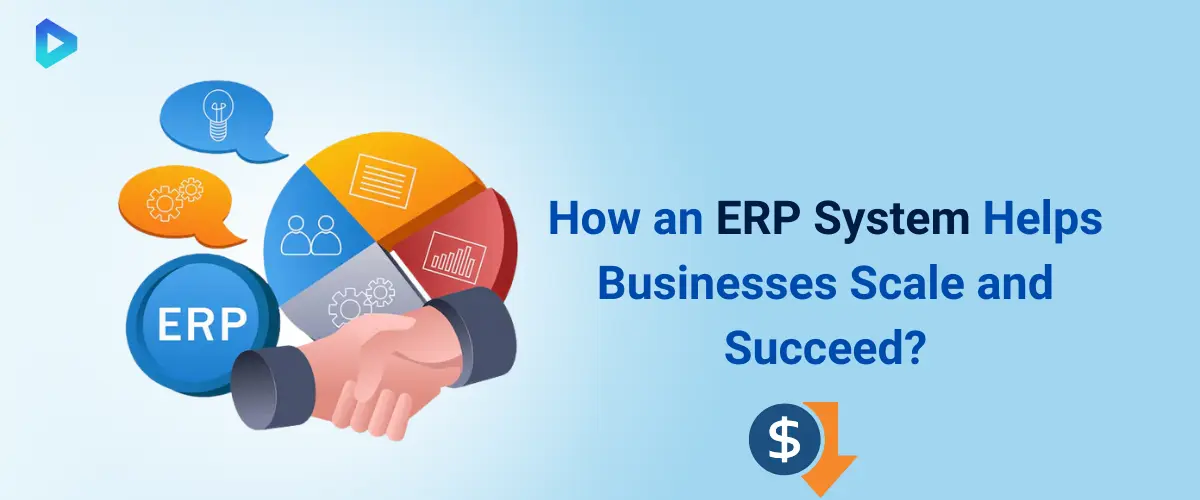
A modern ERP system streamlines operations by automating processes, reducing manual effort, and enhancing collaboration. It eliminates data silos, ensuring all departments work with real-time, accurate information. Some key benefits include:
With these improvements, businesses reduce errors, increase operational speed, and enhance overall productivity.
Investing in a modern ERP system yields significant cost savings and long-term ROI. It reduces:
Additionally, ERP systems boost revenue by improving customer service, sales forecasting, and financial management. Businesses that adopt ERP see improved profitability, optimized resource utilization, and better cost control.
With cybersecurity threats on the rise, modern ERP systems prioritize data protection and regulatory compliance. Key security features include:
By enhancing security protocols, modern ERP ensures business continuity, protects critical data, and builds customer trust.
Cloud ERP solutions are transforming business management by offering enhanced flexibility, scalability, and cost-efficiency.
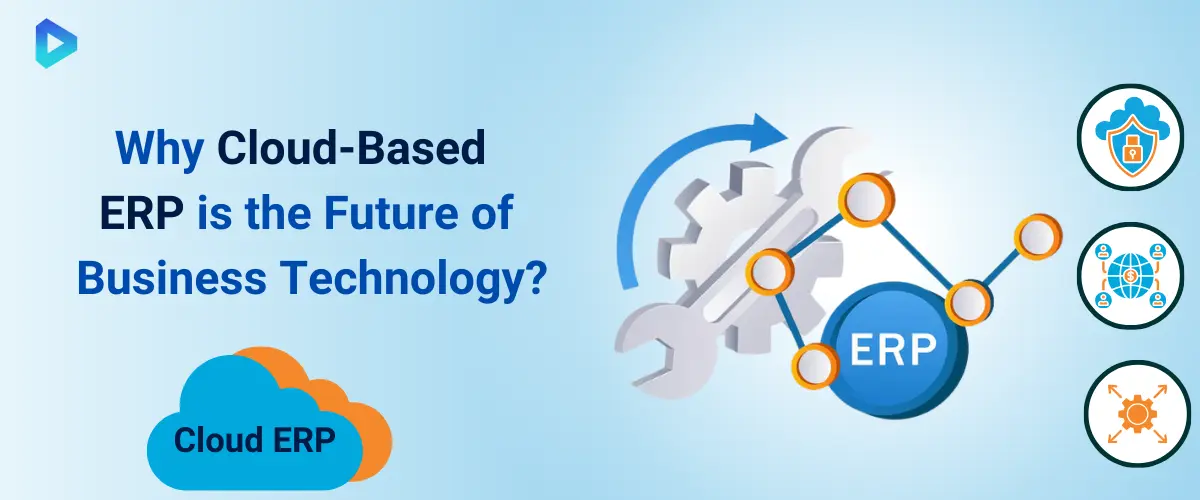
Cloud ERP plays a crucial role in modernizing business processes by enabling real-time decision-making and automation. Unlike legacy ERP systems, which rely on outdated infrastructure, cloud ERP systems operate on a subscription-based model, reducing capital expenditures and IT maintenance costs. Companies benefit from continuous updates, ensuring they always have access to the latest features without needing extensive IT intervention. Additionally, cloud ERP systems integrate seamlessly with third-party applications, allowing businesses to expand their digital capabilities effortlessly.
Migrating to a cloud-based ERP system provides several strategic advantages for businesses looking to scale efficiently. One of the most significant benefits is improved accessibility, allowing teams to work from any location without being tied to a specific network. Cloud ERP solutions also enhance security and compliance, ensuring that sensitive data is encrypted and backed up regularly. Unlike traditional ERP, cloud-based systems are highly flexible, allowing businesses to scale up or down based on their needs.
Key benefits of cloud ERP include:
By leveraging these advantages, businesses can drive operational excellence while maintaining a competitive edge.
A major reason businesses are adopting cloud ERP is its scalability and adaptability. Unlike traditional systems, which require extensive hardware upgrades to accommodate growth, cloud ERP solutions scale effortlessly. Companies experiencing rapid expansion can adjust their cloud resources without disrupting operations. Cloud ERP also supports multi-device accessibility, ensuring that employees can access essential data from desktops, tablets, or mobile devices. This flexibility enables remote teams to collaborate effectively and maintain productivity regardless of location.
Web-based ERP systems have revolutionized enterprise management by providing anytime, anywhere accessibility through cloud technology.
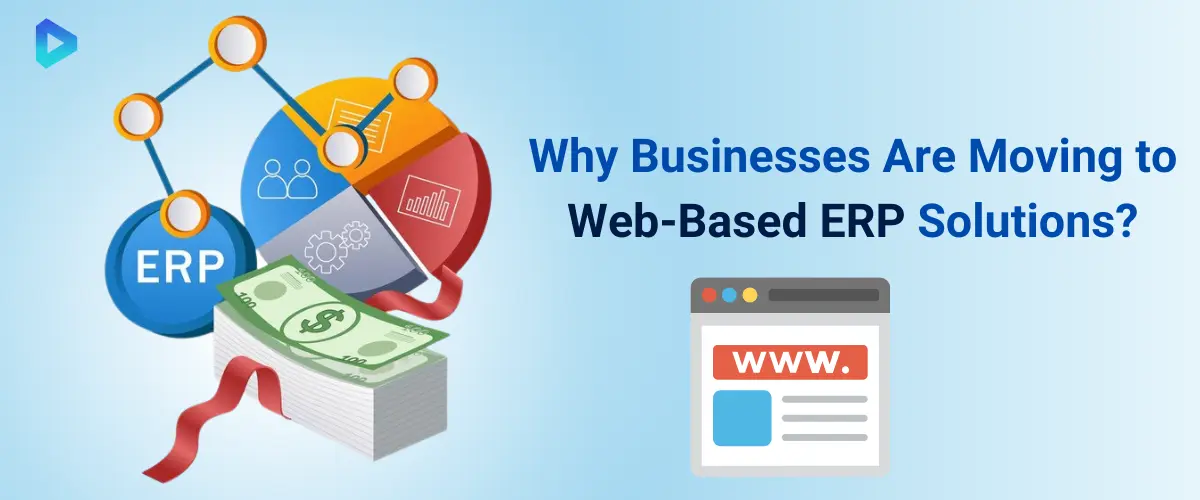
Web-based ERP systems stand out due to their flexibility, ease of deployment, and cost-effectiveness. These systems operate entirely on the cloud, eliminating the need for extensive on-site IT infrastructure. Businesses benefit from real-time data access, enabling decision-makers to track financials, inventory, and customer interactions instantly. Unlike traditional ERP, web-based systems offer automatic updates, ensuring that organizations always use the latest security patches and features. Their user-friendly interfaces reduce the learning curve, making adoption easier for employees.
Small businesses often struggle with resource constraints, making cost-effective and scalable solutions a necessity. Web-based ERP systems address this challenge by offering subscription-based models that reduce upfront investment costs.
Key benefits for small businesses include:
Additionally, web-based ERP systems help small businesses compete with larger enterprises by providing the same level of operational control and data-driven decision-making.
Security is a major concern when transitioning to a web-based ERP system. However, these solutions incorporate advanced security protocols, including encryption, multi-factor authentication, and real-time threat detection. Cloud providers also ensure regular backups, reducing the risk of data loss due to cyberattacks or system failures. From a performance standpoint, web ERP platforms optimize server load balancing, ensuring smooth operations even during peak usage. Their ability to process data in real time enhances business agility, enabling organizations to make informed decisions without delays.
From finance and supply chain management to customer relationships and analytics, ERP systems streamline workflows and eliminate inefficiencies.
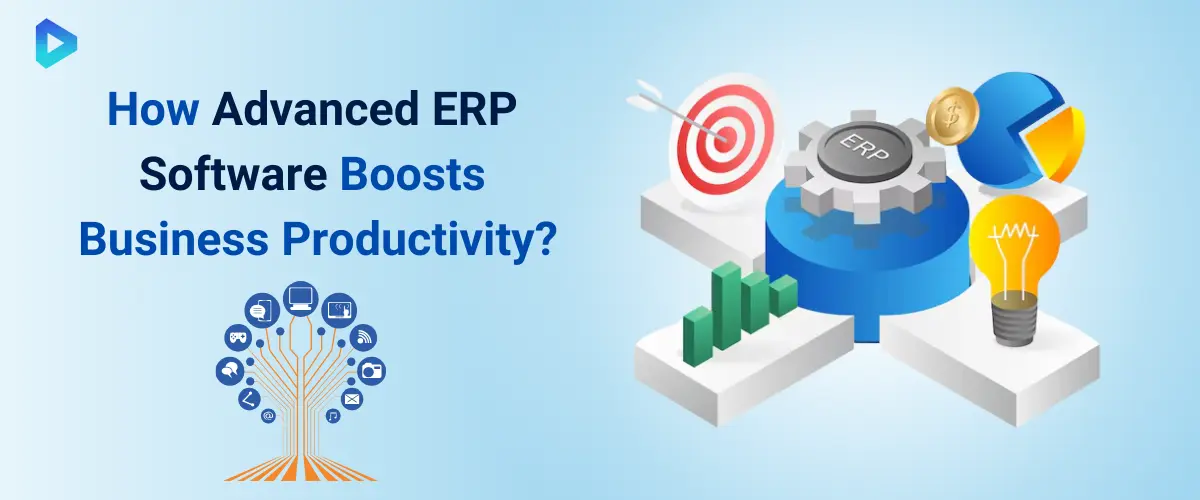
Modern ERP software optimizes business processes by automating routine tasks, reducing errors, and improving efficiency. Unlike traditional ERP systems, modern solutions come with cloud-based accessibility, allowing businesses to operate seamlessly from anywhere. By integrating departments like finance, HR, supply chain, and sales, ERP software eliminates silos and enhances collaboration. Businesses benefit from real-time reporting, enabling quick decision-making. Additionally, AI-powered analytics help predict trends, optimize inventory, and improve customer satisfaction.
Different industries have unique operational needs, and modern ERP software is designed to cater to them with tailored solutions.
By choosing an ERP system that aligns with industry-specific challenges, businesses can enhance operational efficiency, reduce costs, and maximize performance.
Selecting the best ERP software depends on business size, industry requirements, and long-term goals. Cloud-based ERP solutions offer flexibility and scalability, making them ideal for growing businesses.